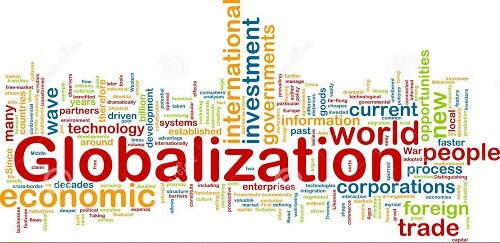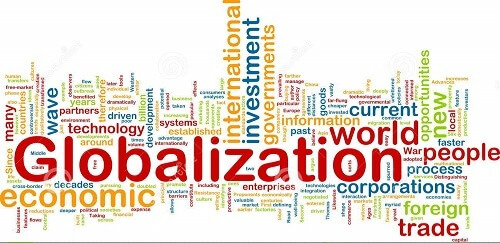Table of Contents
GLOBALISATION AND INDIAN ECONOMY CLASS 10 CBSE
DOWNLOAD MOBILE APPLICATION TO LEARN MORE:GLOBALISATION AND INDIAN ECONOMY CLASS 10 CBSE

21.How do local companies get the benefit when any MNC set up production with them jointly?
a.Local companies become a part of the MNC in all the locations.
b.Local companies share the major part of the profit.
c.Local companies get extra money for investments.
d.Local companies are encouraged to set up their production in other countries.
Answer: C
22.Which of the following countries have n
ot removed the trade barriers from agriculture?
a.Developing countries
b.Developed countries
c.Third world country
d.Countries who are not members of WTO
Answer: B
23.A multinational company set up its production where there is
(i)Lower cost of production
(ii)Cheap skilled and unskilled laborers
a.Only (i) is true
b.Both are true
c.Only (ii) is true
d.Both are false.
24.Which of the following is most favoured route for MNC to establish production unit?
a.Joint venture
b.Buy Local companies
c.Place order to local companies
d.Set up new factories
Answer: B
25.Which of the following is odd one about the MNC to set up its production unit?
a.Cheap labour
b.Favourable government policies
c.Trade barrier
d.Nearer to the market
Answer: C
DOWNLOAD MOBILE APPLICATION TO LEARN MORE: GLOBALISATION AND INDIAN ECONOMY CLASS 10 CBSE
26.Read the statement and choose the correct option:
Globalisation refers to the flow of
(I)Goods
(II)Services
(III)Land
(IV)Culture
a.(I), (II), (IV)
b.(I), (II). (III)
c.(I), (II)
d.(I), (II), (III), (IV)
Answer: A
27.Which one of the following is/ are not the components of the New Economic Policy of India?
a.Privatisation
b.Liberalisation
c.Modernisation
d.Globalisation
(A)Only (I)
(B)Only (II)
(C)(I), (II)
(D)(II), (III)
Answer: B
28.Which of the following factor(s) explains the introduction of the New Economic Policy in 1991?
(i)Mismanagement of the public sector units.
(ii)Fiscal Deficit
(iii)To allow Indian producers to compete with the foreign producers
(iv)Rapid economic development
a.All four
b.Only (i) and (ii)
c.Only (i), (ii) and (iv)
d.None of the above
29.Liberalisation refers to
a.Removing trade barriers
b.Putting restrictions on private sectors
c.High import duty
d.Encouraging public sectors
Answer: A
30.The World Trade Organisations aims to
(i)Liberalise international trade
(ii)Solve disputes related to multilateral trade
a.Both are true
b.Only (i) is true
c.Only (ii) is true
d.Both are false
Answer: A
DOWNLOAD MOBILE APPLICATION TO LEARN MORE: GLOBALISATION AND INDIAN ECONOMY CLASS 10 CBSE

